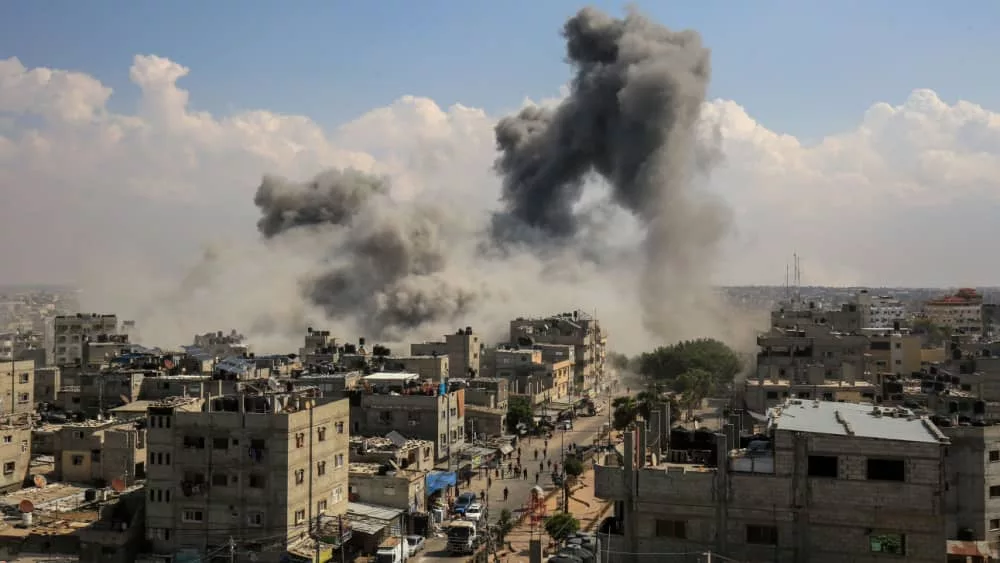
President Joe Biden announced the U.S. has brokered an agreement during his one-day visit to Israel to send aid to Gaza, though agencies warned that the help could potentially come too late for the ravaged territory. Preparation was underway for an initial convoy of 20 trucks carrying humanitarian aid to pass through the Rafah crossing from Egypt to Gaza on Friday under a deal between the US, Israel and Egypt. Under conditions demanded by the Israelis, further consignments of relief supplies would be dependent on whether the first delivery was distributed without Hamas involvement.
Biden said he had also spoken to the Egyptian president, Abdel Fatah al-Sisi, who had agreed to reopen the Rafah. Biden said roads near the border would need repairs after they were damaged in Israeli strikes, but that aid could begin reaching the territory by Friday: “This has been a very blunt negotiation I’ve had. We want to get as many of the trucks out as possible. There’s, I guess, 150 or something there. Not all of them will go the first tranche. If there’s a second tranche – see how it goes.” He said Sisi had “agreed that what he would do is open the gate … to let up to 20 trucks through to begin with. They’re going to patch the road. They have to fill in potholes to get these trucks through. And that’s going to occur; they expect it’ll take about eight hours [on Thursday]. So, there may be nothing rolling through … probably until Friday. For this purpose. Not to allow a lot of people out, but to open it up for this purpose.” Biden added:“If Hamas diverts or steals the assistance, they will have demonstrated once again that they have no concern for the welfare of the Palestinian people, and as a practical matter it will stop the international community from being able to provide this aid.”
Humanitarian organisations have stockpiled life-saving supplies on the Egyptian side of the border, waiting for the crossing to open. UN aid chief Martin Griffiths, told the UN security council on Wednesday that the organization sought to bring aid deliveries to Gaza back to 100 trucks a day: “There is simply nowhere to go for civilians to escape the destruction and privation, both of which grow by the hour as missiles continue to fly and essential supplies, including fuel, food, medical items, water run low. Due to the scarcity of water, UNRWA [the UN relief agency] in some locations … is being forced to ration down to providing one litre of water per person per day. Bear in mind that the minimum by international standards should be 15 litres, and they’re getting one – and they’re the lucky ones.”
Editorial credit: Anas-Mohammed / Shutterstock.com
